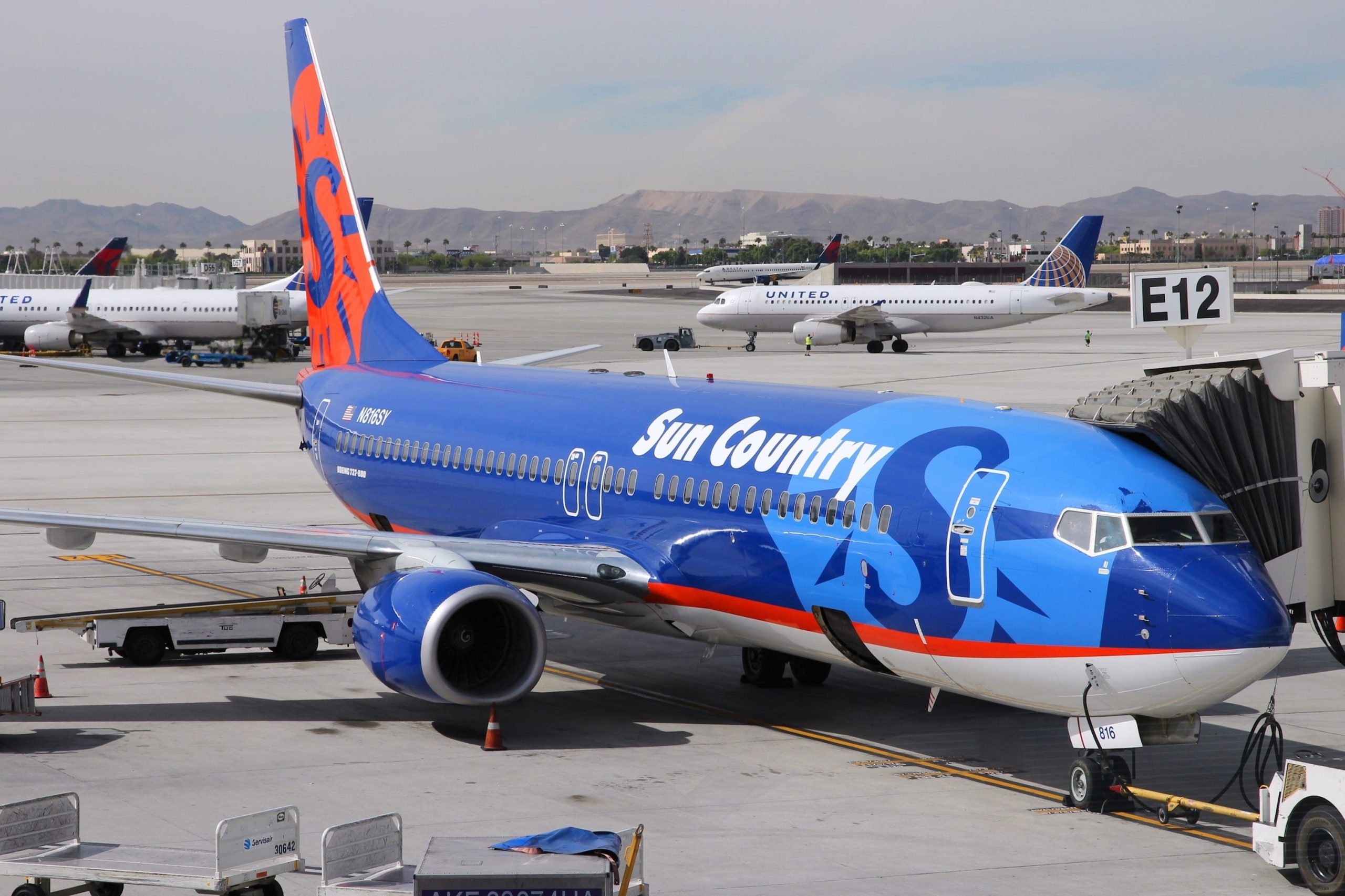
Tupungato / Shutterstock.com
- Tiny Minnesota-based Sun Country Airlines has been one of the most resilient passenger airlines during the coronavirus pandemic, partly thanks to a deal it has to carry cargo for Amazon.
- However, the airline will cut 112 jobs, or 7% of its workforce. Most of the cuts come through attrition, but some employees will be furloughed.
- The cuts underscore how severely the pandemic has impacted the airline industry.
- Visit Business Insider’s homepage for more stories.
Last December, about a month before the COVID-19 virus became widely known and rightly feared, a small Minnesota airline struck a deal to start carrying packages for Amazon under the Amazon Air brand.
Unbeknownst to executives at the time, that move would save Sun Country Airlines. Even as passenger demand collapsed, cargo demand stayed robust, and Sun Country expects to cargo to grow even more as a proportion of its operations as the pandemic rages on.
But the fortuitously timed pivot to cargo wasn’t enough to save the carrier’s workers from the job cuts that have racked nearly every other airline.
This week, the Twin Cities-based airline said it would cut 112 jobs, about 7% of its workforce, the Star Tribune reported.
Although most of the cuts were achieved through attrition, 18 employees were directly affected, according to the newspaper.
Sun Country received $60 million in payroll support aid through the federal CARES Act, a portion of the $25 billion program designed to help prevent airline job cuts earlier in the pandemic. In exchange for the aid, airlines receiving the funding were barred from furloughing workers until after September 30.
Between the aid and the Amazon business, Sun Country was able to post a small profit in the second quarter, as opposed to the massive losses reported by most airlines.
Bookings at the airline are roughly 50% of what they were in 2019 — better than the overall US airline average, which sees demand down 70%. The airline's size and primary customer base — domestic travelers flying for leisure or to visit friends and relatives — leave it slightly advantaged as it adapts to a pandemic that has gutted business travel.
"This is an e-mail I hoped never to send," CEO Jude Bricker said in a message to employees cited by the Star Tribune. "I'm genuinely sorry that despite all of our collective best efforts, we have reached this point."
